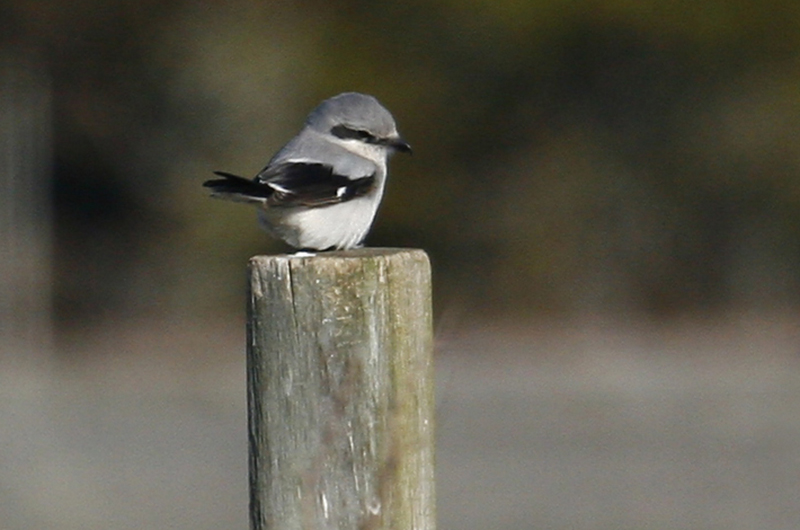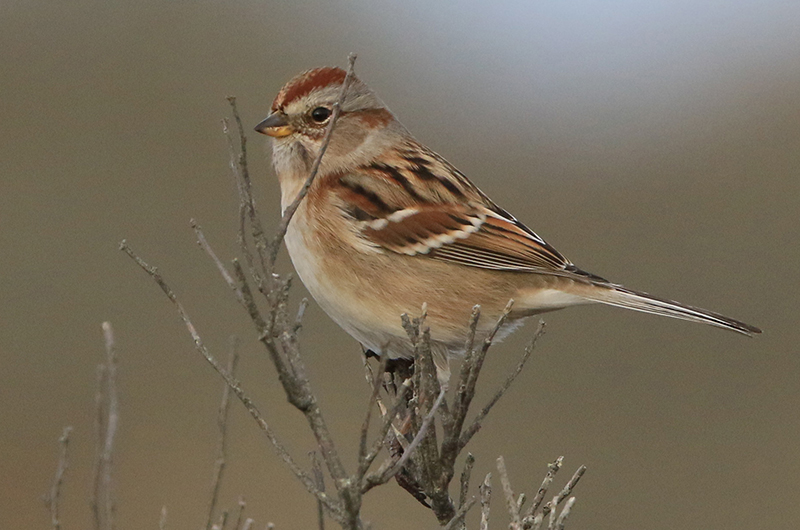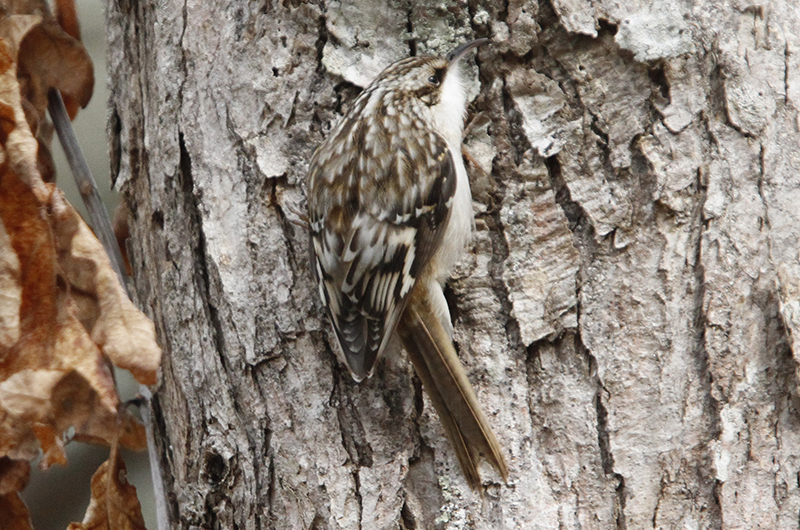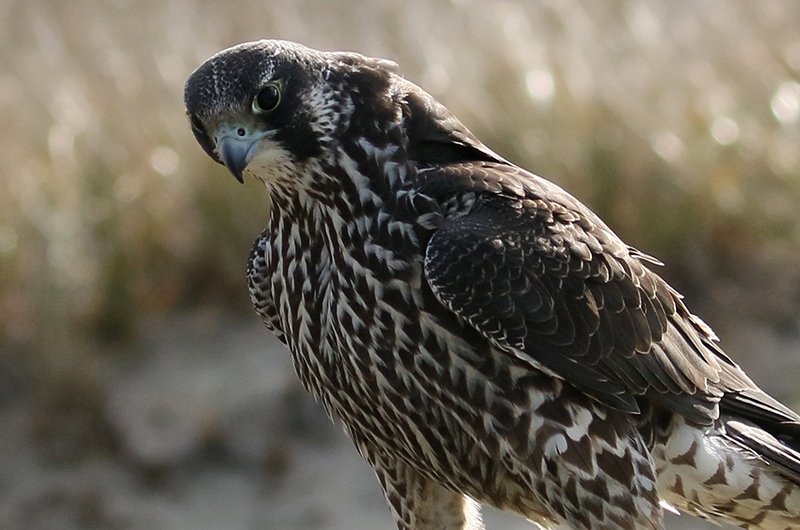Just about all the bird sightings were on Dec. 1 this week! It is understandable in this working world to have sightings on Saturdays but why are there no particular sightings from Sunday?
A northern shrike was the most interesting sighting of the past week. It was spotted by Ken Magnuson at Lobsterville on the morning of Dec. 1. The sighting was posted and, that afternoon, Luanne Johnson and Lanny McDowell found it. They look a lot like a mockingbird until you see its strong, hooked beak. We do not see this species every year.
Brian Packish spotted an adult peregrine falcon on one of the Chappaquiddick beaches on Dec. 1. Antone Lima saw this bird on Nov. 24 in the same location and he thinks it may be the same bird that was there in each of the past two winters.
Lanny McDowell spotted a tree sparrow at his home on Dec. 1. Also on the sparrow front, a fox sparrow showed up at Connie Alexander’s feeder in addition to the more usual juncos, mourning doves, chickadees and woodpeckers. Happy and Steve Spongberg report that one showed up at their feeders as well; Albert Fischer’s sighting of a fox sparrow was from a week earlier, Nov. 24.
Also on Dec. 1, Jeff Bernier found a flock of about 25 snow buntings at one of the South Beach right fork parking lots.
On Nov. 30 a couple of birds showed up as well; Sharon Simonin spotted a northern harrier at South Beach, while Lanny McDowell had a pine siskin and a brown creeper at his feeders.
To close this part of the column, I remind everyone that the annual Martha’s Vineyard Christmas Bird Count will be held on Saturday, Jan. 5. This event has been conducted since 1960, so this will be the 59th consecutive year. It is a fun day to learn while in the field with fellow birders, or you can also contribute by recording how many birds visit feeders in your yard. More information will follow in future weeks.
Most of us realize that invasive species are harmful because they displace native species; this makes intuitive sense because the invasives become so common–they would not be considered invasive if they did not become common–and the environment cannot support infinite numbers of plants or animals. But such effects are incredibly hard to quantify for either plants or animals.
Two recent studies show how populations of native birds may be harmed by invasive plants. One of the studies documents that the berries of invasive plants are abundant (Oriental bittersweet, multiflora rose, honeysuckle, etc.), but they have fewer nutrients than do berries of native plants. This reduced nutrition can adversely affect the many fall migrants that depend on quickly gaining weight so they can continue their migrations; if they do not eat enough to gain weight (storing it as fat on their chest) they will not be strong enough to complete their next migration flight. And no matter how mild our falls are, the food scarcity associated with cold winter weather will eventually catch up with these weakened late migrants, to their detriment.
A second study links invasive plants to the reproductive success of the insectivorous Carolina chickadee, a cousin of our black-capped chickadee. The study documented that yards dominated by invasives support fewer insects, so the chickadees will go hungry or switch to secondary and less nutritious foods; they then fledge fewer young or perhaps even do not attempt to nest at all. Needless to say (but I will anyway), lower fledging success leads to declining populations.
While invasives are far from the only reason for declining populations, it helps explain why most birders of more than 20 years report that birds just are not as abundant as they were back then. And studies by the Massachusetts Audubon Society have documented that 39 per cent of our breeding birds and 26 per cent of our wintering birds have declining populations. Wow. Kudos to all that are removing invasives and replacing them with native species.
Fall and winter resident species are still showing up. Please report all your sightings to birds@mvgazette.com.
Robert Culbert schedules private Guided Birding Tour and is an ecological consultant with Nature Watch, LLC living in Vineyard Haven.








Comments (3)
Comments
Comment policy »